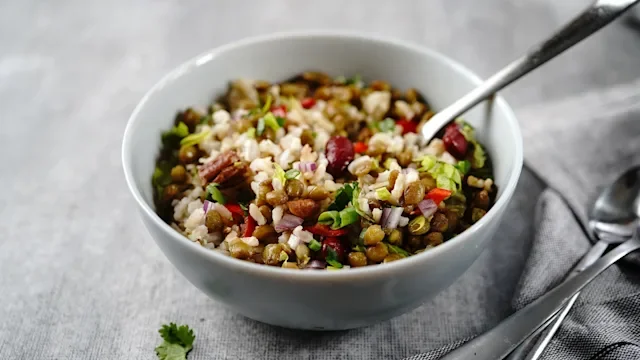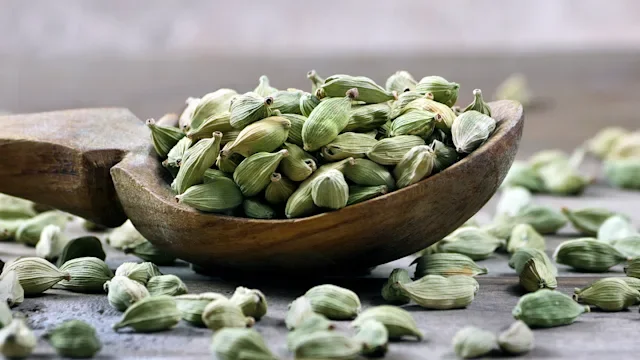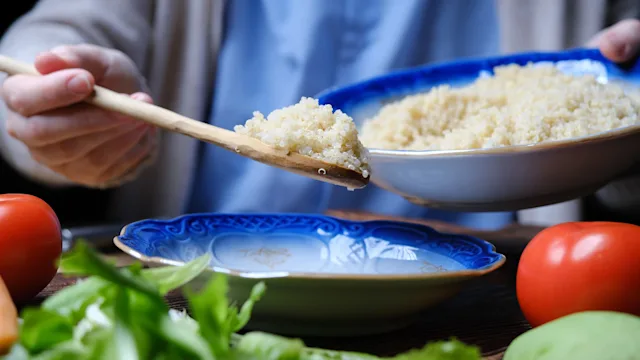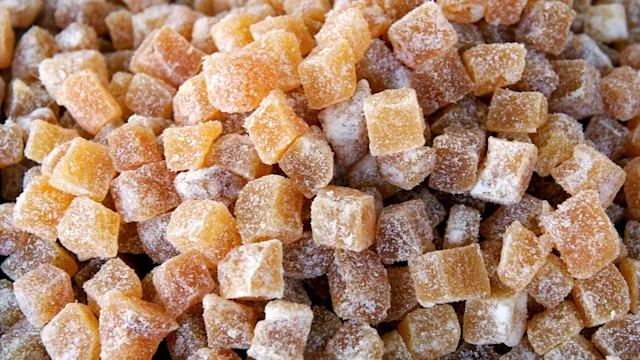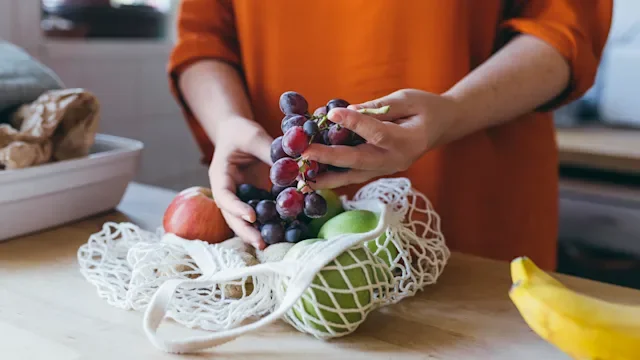Key takeaways:
Dandelion tea is an herbal drink naturally packed with vitamins, minerals, and antioxidants.
The nutrients in dandelion tea may lower inflammation, support gut health, and help regulate blood sugar.
For some people, dandelion tea can lead to heartburn, upset stomach, diarrhea, and low blood sugar.
Dandelion tea can interact with certain medications, including blood thinners and some diabetes medications.
You may know dandelions as the stubborn, bright yellow weeds that pop up on lawns and in sidewalk cracks everywhere. But dandelions are more than a pesky plant. It turns out you can use them to make tea.
Like many herbal teas, dandelion tea is caffeine-free. It also contains vitamins, minerals, and antioxidants that may have benefits for your health. So let’s take a look at what dandelion tea is, how it’s made, and its potential benefits and downsides.
What is dandelion tea?
Dandelion tea is a naturally caffeine-free herbal drink. You can often find it on grocery store shelves. But you can also brew it yourself by steeping fresh or dried dandelion in hot water.
Some dandelion tea uses the leaves (the yellow part), which makes a sweet-tasting tea. Other dandelion tea uses ground dandelion roots, which produces a smokier-tasting tea. And some dandelion teas use the entire plant, from flower to root.
Dandelion tea nutrition
Dandelions are full of vitamins and minerals, including:
Vitamin A
Vitamin B
Vitamin C
Vitamin E
Vitamin K
The minerals (and electrolytes) calcium, sodium, magnesium, and potassium
But many of dandelion tea’s potential health benefits are due to its antioxidants. Antioxidants are nutrients that protect your body’s cells from damage. This damage is caused by free radicals, which are unstable molecules. When too many free radicals build up in your body, they cause oxidative stress. Oxidative stress can increase your risk for chronic conditions, including:
Type 2 diabetes
Cancer
Heart disease
Kidney disease
Excess weight
Alzheimer’s disease
Parkinson’s disease
Dandelion tea contains many different kinds of antioxidants. These include flavonoids, saponins, and phenolic acids. Getting a variety of antioxidants in your diet is good for your health. There are thousands of types of antioxidants, and getting a mix of them from foods and drinks provide different health benefits.
What’s the best tea for gut health? Many herbal teas can help with issues like gas and cramps. But the best tea for your gut health may depend on your specific symptoms.
Foods for kidney health: Your kidneys filter your blood and get rid of waste through your urine. Fatty fish and whole grains are two of the foods that support the health of your kidneys.
Best antioxidant drinks: Coffee and tea are two drinks high in antioxidants, nutrients that protect your body from disease-causing damage.
What are dandelion tea’s health benefits?
Let’s take a look at some of the ways dandelion tea may benefit your health.
Note that most of the research on dandelion has been on animals and in laboratories. This doesn’t mean the data isn’t valid. But it does mean we need more human research to understand how dandelion tea affects people.
1. Anti-inflammatory effect
The flavonoids and other antioxidants in dandelion tea have anti-inflammatory properties.
“Dandelion tea is a great option for people managing inflammatory conditions, or anyone who wants to reduce everyday inflammation,” said Kathryn Durston, RDN, a registered dietitian nutritionist and the owner of Naturally Good Nutrition.
Reducing inflammation in your body can prevent it from becoming chronic, Durston said. This is important because chronic inflammation can put you at risk for long-term health conditions like heart disease and diabetes.
2. Gut health
Research suggests that dandelion tea may calm inflammation in the gastrointestinal (GI) tract. This may help with symptoms of certain GI disorders, such as:
Gastroesophageal reflux disease
Gastritis
Gallstones
Ulcerative colitis
“On the flip side, some people experience digestive discomfort with dandelion tea,” Durston said. So her advice is to start with a small quantity. “It’s best to try it out and see what works for you.”
3. Lowering cholesterol
The antioxidants in dandelion tea may lower your cholesterol — and this supports heart health. Animal and test tube studies suggest that dandelion lowers triglycerides and “bad” LDL (low-density lipoprotein) cholesterol. It also may increase “good” HDL (high-density lipoprotein) cholesterol. But human studies are needed to learn more about dandelion tea’s potential impact on cholesterol.
4. Lowering blood sugar
Animal and test tube studies suggest that dandelion may lower blood sugar. It’s thought that dandelion triggers the pancreas to release insulin, the hormone that helps regulate your blood sugar. Dandelion’s antioxidants may also help protect the pancreatic cells responsible for insulin release. These benefits mean that dandelion tea may be helpful for people with prediabetes or Type 2 diabetes.
5. Weight loss
Laboratory and animal research suggests that dandelion may help with weight loss. One study found that dandelion may work similarly to Orlistat, a weight-loss medication that blocks an enzyme that digests fat.
And human research shows that dandelion tea has a diuretic effect. This means that it makes you pee more often. This can help flush excess water from the body. This isn’t true weight loss. But dandelion tea may reduce bloating caused by water retention from high sodium intake.
Some of dandelion tea’s other health benefits — such as its effects on blood sugar — may indirectly help with weight loss.
6. Liver health
One review found that the antioxidant and anti-inflammatory effects of dandelion tea may help liver function. In animal studies, dandelion extract helped protect the liver from damage caused by alcohol or medication.
What are the negative side effects of dandelion tea?
Dandelion tea is generally safe for most people. But some people may experience side effects from it, such as:
Heartburn
Upset stomach
Diarrhea
Low blood sugar
Who should limit or avoid dandelion tea?
Dandelion may interact with certain medications. So it’s a good idea to talk with a healthcare professional before drinking dandelion tea regularly if you take:
Diuretic medications
Medications to lower blood sugar
Blood thinners
It’s also possible to have a dandelion allergy. You may want to avoid dandelion tea if you’re sensitive or allergic to other plants in the Asteraceae family, such as:
Ragweed
Chrysanthemums
Marigolds
Daisies
Sunflowers
It’s always a good idea to check with your primary care provider before taking any herbs. This includes dandelion tea.
“As with any herbal tea, it’s smart to check with your healthcare provider to make sure it’s safe for you,” Durston said.
How do you make dandelion tea?
It’s easy to make dandelion tea at home. If you don’t have dandelions in your yard, you may be able to find them fresh or dried at a local farmer’s market or grocery store. You can also pick dandelions from public spaces (making sure to check local regulations first). Avoid picking dandelions from roadside locations since they’re more likely to be coated with fuel emissions and dust. Also avoid picking dandelions from areas that have been treated with pesticides.
Once you have fresh or dried dandelions, steep the leaves and/or roots in hot water for at least 10 minutes. Then, strain out the dandelion.
Dandelion tea can taste slightly bitter. You can add a natural sweetener like honey or maple syrup. Durston suggests adding other herbs, such as mint, for a smoother flavor.
Frequently asked questions
Like other herbal teas, dandelion tea is naturally caffeine-free.
There isn’t a food or drink that can reduce belly fat on its own. But by helping to regulate your blood sugar, dandelion tea may reduce the spikes and crashes that can lead to food cravings. Dandelion tea can also indirectly support weight goals if you’re drinking it in place of sugary, high-calorie beverages.
There’s limited research on whether dandelion tea is safe to drink during pregnancy. So if you are pregnant, it’s important to talk with a healthcare professional before consuming dandelion tea or other herbal products.
Like other herbal teas, dandelion tea is naturally caffeine-free.
There isn’t a food or drink that can reduce belly fat on its own. But by helping to regulate your blood sugar, dandelion tea may reduce the spikes and crashes that can lead to food cravings. Dandelion tea can also indirectly support weight goals if you’re drinking it in place of sugary, high-calorie beverages.
There’s limited research on whether dandelion tea is safe to drink during pregnancy. So if you are pregnant, it’s important to talk with a healthcare professional before consuming dandelion tea or other herbal products.
The bottom line
Dandelion tea is made by steeping the leaves, flowers, and/or roots of dandelion in hot water. It contains many different antioxidants that may help reduce body-wide inflammation, lower cholesterol, and support blood sugar management, among other things. But there isn’t a lot of human research on dandelion yet, so data is limited.
For most people, dandelion tea is safe to drink. But it can interact with some medications. So check in with a healthcare professional before drinking dandelion tea (or starting any herbal supplement), especially if you’re pregnant or nursing.

Why trust our experts?



References
American Pregnancy Association. (n.d.). Herbs and pregnancy.
Beyond Type 1. (2022). High blood sugar and hunger. American Diabetes Association.
Choi, U., et al. (2010). Hypolipidemic and antioxidant effects of dandelion (Taraxacum officinale) root and leaf on cholesterol-fed rabbits. International Journal of Molecular Sciences.
Clare, B. A., et al. (2009). The diuretic effect in human subjects of an extract of taraxacum officinale folium over a single day. Journal of Alternative and Complementary Medicine.
Kim, J. H., et al. (2015). Cross-allergenicity between dandelion and major weed pollens. Allergy, Asthma & Respiratory Disease.
Li, W., et al. (2022). Anti-inflammatory effects and mechanisms of dandelion in RAW264.7 macrophages and zebrafish larvae. Frontiers in Pharmacology.
Li, Y., et al. (2022). The potential of dandelion in the fight against gastrointestinal diseases: A review. Journal of Ethnopharmacology.
Mahboubi, M., et al. (2020). Hepatoprotection by dandelion (Taraxacum officinale) and mechanisms. Asian Pacific Journal of Tropical Biomedicine.
Memorial Sloan Kettering Cancer Center. (2023). Dandelion.
National Cancer Institute. (n.d.). Free radical. National Institutes of Health.
National Center for Complementary and Integrative Health. (2024). Dandelion. National Institutes of Health.
Olas, B. (2022). New perspectives on the effect of dandelion, its food products and other preparations on the cardiovascular system and its diseases. Nutrients.
Reddy, V. P. (2023). Oxidative stress in health and disease. Biomedicines.
Vielma, F. H., et al. (2025). The role of dandelion (Taraxacum officinale) in liver health and hepatoprotective properties. Pharmaceuticals.
Vinton, S. B. (2020). How to eat dandelions. FoodPrint.
Wirngo, F. E., et al. (2016). The physiological effects of dandelion (Taraxacum officinale) in type 2 diabetes. Journal of the Society for Biomedical Diabetes Research.
Yan, Q., et al. (2024). The phytochemical and pharmacological profile of dandelion. Biomedicine & Pharmacotherapy.
Zhang, J., et al. (2008). Pancreatic lipase inhibitory activity of Taraxacum officinale in vitro and in vivo. Nutrition Research and Practice.




